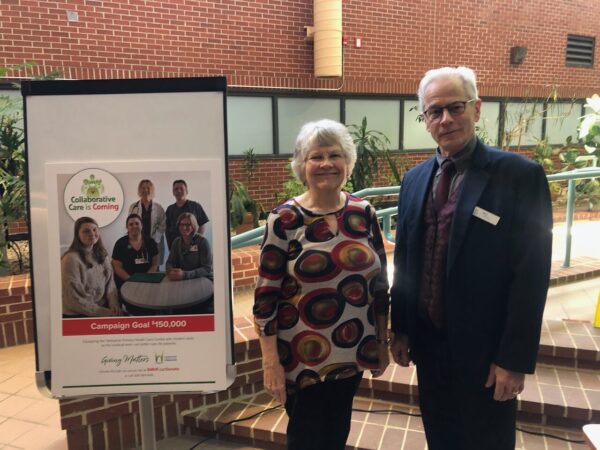
Starting Monday, residents of the Drew Nursing Home will start to get their booster doses of COVID-19 vaccine, along with their seasonal flu shots. The boosters were first announced for long term care residents just over two weeks ago, after NACI (the National Advisory Committee on Immunization) came down with a recommendation in favour.
More recently, New Brunswick has added health care workers and First Nations communities to the list of people who can access a booster shot. That’s a pre-emptive decision, in advance of a recommendation from NACI. In their announcement on Tuesday, the province said details on booster shots for other groups, “will be available in the coming weeks,” indicating that the province is using the same strategy for the rollout of boosters as it did with the rollout of first and second shots, that is, moving by demographic groups according to vulnerabilities.
Approved groups so far are having their shots administered through public health clinics or on site, such as at the Drew Nursing Home. That means local pharmacies such as the Corner Drug Store are not yet giving ‘boosters’ per se, though they are giving out third doses to immune compromised people.
Corner Drug pharmacist-owner Charles Beaver is careful to distinguish between those third shots, and the booster shots which are expected to start to roll out through pharmacies in the coming weeks.
“Folks who are receiving third doses right now at the pharmacy are only those who, because of an immune compromised condition, cannot produce adequate immunity from the first two doses,” says Beaver. It’s not so much about vulnerability to COVID-19 as it is about the fact that some people need three shots in order to get the effect that others get from two. Those people are able to get a third dose as soon as possible, without waiting six months.
Booster shots, on the other hand, are an additional shot now being approved for people who were fully vaccinated at least 6 months ago, because studies are showing that immunity is waning after those 6 months.
Beaver says anyone anxious to get their booster shot should wait before calling a pharmacy or trying to book an appointment, “because there is no criteria under which we can vaccinate them,” unless they happen to be immune compromised.
He’s hoping the government will rollout the age groups gradually, so as to prevent the system from being overwhelmed. If everyone over 65 became eligible at once, says Beaver, “it would be impossible to manage both the volume of calls or the vaccinations.” Regardless of what schedule the government uses, Corner Drug relies on a booking system that will prioritize people in the order they received their first and second shots, he says.
FIRST AND SECOND DOSES CONTINUE TO ROLL OUT
Beaver says the Corner Drug continues to see demand for first doses, “virtually every day of the week.”
He says walk-in appointment availability has been key. “There’s lots of folks that, you know, life’s busy, they forget, just booking appointments doesn’t seem to work for them. But when they see the sign and know they can just walk in and receive their first dose, they do.”
Beaver did notice that shortly after the announcement regarding New Brunswick’s proof of vaccination requirements and mandatory vaccinations for provincial workers, there was an uptick in appointments. “And some weren’t very happy about it to be honest,” says Beaver. These days, it’s less about that motivation and more about “just, it’s time.”
“A lot of folks are afraid of needles, or have concerns about the vaccine,” says Beaver. “Some really good conversations happen prior to the vaccination. A lot of folks do have concerns and when you talk through them, many or even most of them are completely unfounded.”
KIDS VACCINE COMING SOON, HOPES BEAVER
Beaver says he expects that an approved kid’s vaccine will be available in Canada within the next two months. “Personally, I hope it does,” says Beaver, “because rolling it out alongside of influenza vaccine would make a lot of sense.”
Beaver says he is approaching the local middle and elementary schools to try to organize vaccinations in the schools. “I believe strongly that that five to 11 year old demographic should not be dragged into the pharmacy for that particular service,” says Beaver. “Some get along just fine, but others, by the time they arrive are very, very anxious.”
“We’re also proactively trying to have conversations with parents and guardians, and any interested parties about the safety and efficacy of the vaccine in younger children. So that when the day comes that they have the choice, they use the best information available to decide whether or not to vaccinate their child,” says Beaver.
Even though children don’t usually have bad outcomes from a COVID-19 infection, Beaver points out there have been deaths in every age group. “And transmission in the community is much easier when that whole age group is unprotected,” says Beaver. “We’ve only recently seen the devastating effects of community spread when it reached our local nursing home, and the very, very sad and tragic outcomes that can happen.”




















